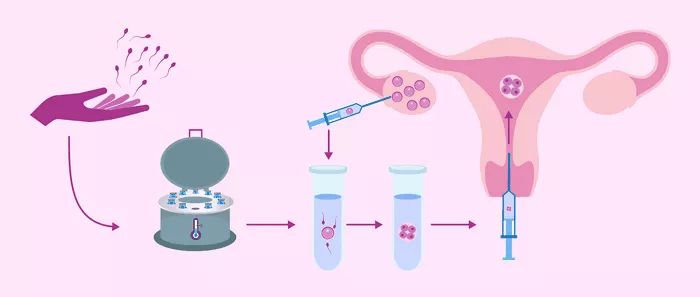A recent study published in Fertility and Sterility has revealed that in vitro fertilization (IVF) is associated with an increased risk of severe maternal morbidity and cesarean deliveries, even among low-risk patients without pre-existing health conditions. The exact relationship between IVF and maternal morbidity remains uncertain for patients with existing comorbidities.
Researchers conducted a retrospective cohort study using data from seven hospitals within a large academic health system in New York, spanning from January 2019 to December 2022. The primary objective was to examine the correlation between IVF and severe maternal morbidity among low-risk pregnant patients.
Severe maternal morbidity was defined as the primary outcome, while the need for cesarean delivery served as the secondary outcome. By identifying IVF as a potential factor contributing to severe maternal complications, healthcare providers may adopt proactive strategies to minimize risks, such as enhanced monitoring during pregnancy and delivery, along with customized postpartum care.
Out of 39,668 pregnancies analyzed, only 1.1% were conceived through IVF. The cohort predominantly consisted of non-Hispanic White individuals (43.1%), with Hispanic (19.7%), Asian or Pacific Islander (14.7%), and non-Hispanic Black (9.3%) patients also represented. Most patients had private insurance (58.7%), preferred English as their primary language (90.0%), and were first-time mothers (58.2%).
The overall incidence of severe maternal morbidity within the study population was 2.4%, mainly attributed to blood transfusions, while cesarean deliveries accounted for 18.8% of all pregnancies.
When comparing IVF and non-IVF pregnancies, the rate of severe maternal morbidity was significantly higher in the IVF group (6.4% vs. 2.4%; P < 0.001). After controlling for confounding variables, the study found that IVF was linked to a substantially increased risk of severe maternal morbidity, with a risk ratio (RR) of 2.56 (95% CI, 1.73–3.79).
Additionally, cesarean deliveries were more prevalent in IVF pregnancies, occurring in 36.6% of these cases compared to 18.7% in non-IVF pregnancies (P < 0.001). After adjustments for potential confounders, IVF pregnancies demonstrated a higher likelihood of requiring cesarean delivery, with a risk ratio of 1.54 (95% CI, 1.37–1.74).
The study acknowledges several limitations, including its retrospective nature, reliance on administrative data, and the lack of information on the specific causes of infertility among participants.
The authors concluded that recognizing IVF conception as a potential factor in severe maternal morbidity allows healthcare providers to implement proactive measures to mitigate risks. These measures may include improved monitoring during pregnancy and delivery and personalized postpartum care.
Related topics:

























